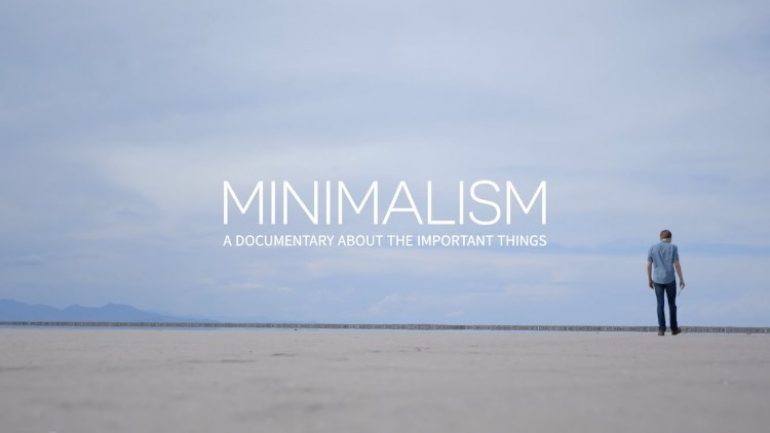In the fast-paced, consumer-driven world we live in, the documentary Minimalism takes viewers on a thought-provoking journey into the lives of minimalists and the philosophy behind this lifestyle choice. This feature documentary explores the core principles of minimalism, emphasizing the value of experiences and relationships over material possessions.
We see the film open up by presenting a stark contrast between the average American lifestyle and the minimalist way of life. It introduces the two main protagonists, Joshua Fields Millburn and Ryan Nicodemus, two childhood friends who have adopted minimalism as a means to find greater fulfillment and purpose in their lives. Their personal stories serve as the backdrop for the broader exploration of minimalism.
At its heart, minimalism is about simplifying one’s life by reducing clutter and excess, both physically and mentally. The film delves into the reasons why many people feel overwhelmed and unfulfilled despite owning an abundance of material possessions. It raises important questions about the consumer-driven culture that encourages constant acquisition and accumulation.
Through interviews with experts, psychologists, and other minimalists, the documentary explores the psychology behind our attachment to possessions and the impact of consumerism on our well-being. It highlights the consequences of overconsumption, including the toll it takes on our environment and the ever-increasing burden of debt that plagues many individuals and families.
One of the key takeaways from the documentary is the idea that minimalism is not simply about getting rid of stuff; it’s a mindset shift that leads to a more intentional and meaningful life. Viewers are introduced to individuals who have embraced minimalism in various ways, from tiny house living to downsizing their wardrobes. These stories serve as inspiration for those looking to make a change in their own lives.
The film also explores the concept of the “less is more” philosophy. Minimalists argue that by owning fewer possessions, we can focus our time, energy, and resources on the things that truly matter. This includes nurturing relationships, pursuing passions, and pursuing personal growth. Throughout the documentary, viewers are encouraged to reflect on their own priorities and the role material possessions play in their lives.
“Minimalism” also touches on the impact of technology on our lives. In an age where we are constantly bombarded with digital distractions, the documentary raises important questions about the need for digital minimalism. It emphasizes the importance of disconnecting from screens to reconnect with ourselves and others.
As the documentary progresses, it becomes clear that minimalism is not a one-size-fits-all solution. It’s a highly personal journey, and individuals can choose to incorporate its principles to varying degrees. The documentary encourages viewers to find their own version of minimalism that aligns with their values and goals.
In conclusion, Minimalism is a thought-provoking exploration of a lifestyle choice that challenges the status quo of consumerism and materialism. It invites viewers to reconsider their relationship with possessions and encourages them to prioritize experiences and relationships over stuff. Through engaging storytelling, interviews, and personal anecdotes, the documentary provides valuable insights into the world of minimalism and its potential to lead to a more fulfilling and intentional way of life. It is a reminder that sometimes, the most important things in life are not things at all.
Directed by: Matt D'Avella





Just watched a fascinating documentary on urban architecture and sustainable living. It reminded me of a solution we used in our own home: reflective window film. While the film focused on large-scale green buildings, the principle is the same for homeowners. We significantly reduced our cooling costs and protected our furniture from sun damage by installing a quality solar control film. I found some great information and options at https://www.tintfit.com/shop/reflective-window-film
that explain the science behind it. It’s a practical takeaway that shows how the principles of large-scale sustainability can be applied to everyday life.
a nice blog amazing and wonderful information you have shared with us wisely pay